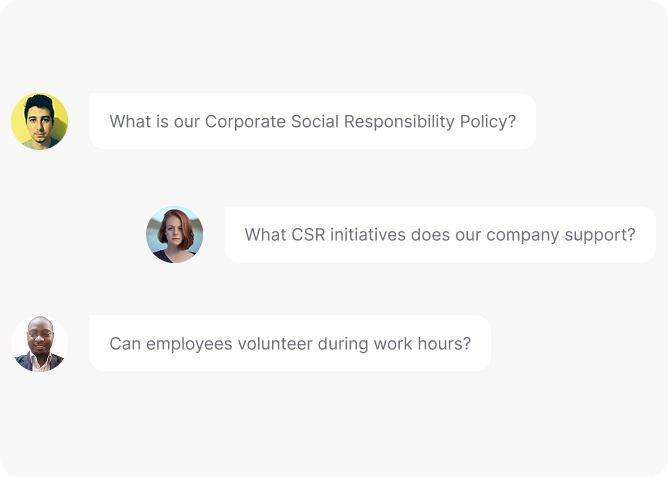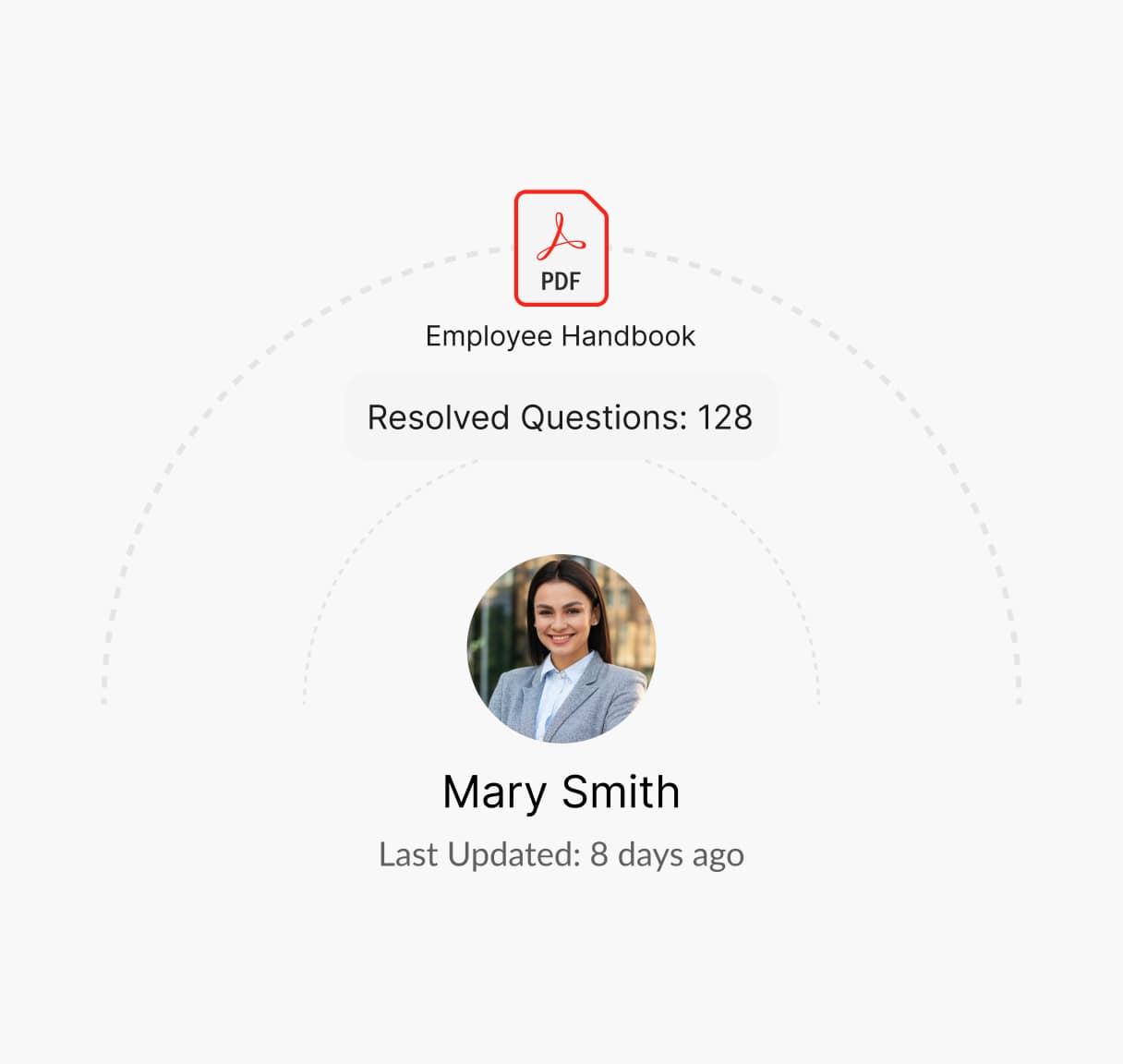Everything You Need to Know About Corporate Social Responsibility Policy
A strong Corporate Social Responsibility (CSR) Policy reinforces a company’s commitment to ethical business practices and community impact. It defines sustainability initiatives, volunteer programs, and corporate ethics to align business goals with social good.

What is a Corporate Social Responsibility Policy?
A Corporate Social Responsibility Policy is an HR document that outlines the company’s commitment to ethical, environmental, and social initiatives. It includes sustainability efforts, community involvement, and responsible business practices.
A well-defined CSR policy enhances corporate reputation and aligns business goals with social impact.
Guidelines for Creating a Corporate Social Responsibility Policy
A well-structured CSR policy outlines an organization’s commitment to ethical business practices, sustainability, and social impact. Here’s how to develop one effectively:
Define Core CSR Focus Areas
Specify key initiatives, such as environmental sustainability, community support, or workplace diversity.
Align CSR Goals with Business Values
Ensure CSR efforts reflect the company’s mission, ethics, and long-term objectives.
Encourage Employee Participation
Create opportunities for employees to engage in CSR activities, such as volunteering or charity programs.
Establish Ethical Supply Chain Practices
Promote sustainability by ensuring suppliers and partners adhere to responsible business practices.
Measure and Report CSR Impact
Implement metrics and reporting methods to track progress and communicate CSR efforts transparently.
Maintain Compliance with Global Standards
Adhere to international CSR frameworks and regulations, ensuring credibility and accountability.
What is Covered in a Corporate Social Responsibility Policy?
An effective Corporate Social Responsibility Policy should include the following:
Environmental Sustainability Initiatives
Define commitments such as reducing carbon footprints, waste management, and energy conservation.
Community Engagement and Philanthropy
Outline programs supporting local communities, charities, and employee volunteer initiatives.
Diversity, Equity, and Inclusion (DEI)
Detail strategies to foster a diverse, inclusive, and equitable workplace.
Ethical Business and Labor Practices
Ensure fair wages, ethical sourcing, and respect for human rights in business operations.
Transparency and Reporting Measures
Specify how CSR progress will be monitored, measured, and disclosed in reports.
Sustainability in Supply Chain Management
Implement guidelines ensuring ethical and environmentally friendly sourcing of materials.
Compliance with CSR Regulations
Align with recognized frameworks such as the UN Global Compact or ESG (Environmental, Social, Governance) standards.”
Need help creating a Corporate Social Responsibility Policy?
How Winslow helps HR pros save time on responding to CSR policy questions
Managing CSR-related inquiries can be time-consuming, but Winslow, your AI-powered HR assistant, simplifies the process:

Instant answers anytime
Winslow ensures your CSR Policy is always available on Slack, Teams, or email. Employees can instantly access guidelines on sustainability efforts, volunteer programs, and ethical sourcing—ensuring alignment with company values.
Personalized Support
Winslow instantly answers employee questions, including those about your CSR Policy, ensuring clarity on donation matching, corporate partnerships, and community initiatives.


Analytics and Insights
Winslow tracks policy-related queries, helping HR teams identify trends and common concerns. This data enables organizations to refine their policy, improve reporting channels, and address recurring issues proactively.
Save Time on Corporate Social Responsibility Policies with Winslow
Encouraging employee participation in CSR initiatives requires ongoing communication. Winslow instantly answers questions about sustainability efforts, volunteering programs, and ethical sourcing—helping HR drive engagement without extra workload.
Frequently asked questions
Have further questions about Winslow, contact us at sales@usewinslow.com
How should HR teams integrate CSR initiatives into company culture rather than treating them as one-time efforts?
HR should establish ongoing CSR programs tied to company values, such as sustainability initiatives, charity partnerships, and volunteering days. Employees should be involved through CSR committees, and participation should be recognized in performance reviews or rewards programs.
What role does HR play in ensuring CSR initiatives are measurable and impactful?
HR should define CSR goals with measurable KPIs, such as volunteer hours, carbon footprint reduction, or donations raised. Conducting annual impact reports and gathering employee feedback on CSR effectiveness ensures continuous improvement.
How can HR encourage employee participation in CSR initiatives without making it feel mandatory?
Offering paid volunteer hours, integrating CSR into team-building events, and allowing employees to nominate causes for company support increase engagement without coercion.
How should HR ensure CSR initiatives align with business objectives and brand reputation?
HR should collaborate with leadership to identify CSR projects relevant to industry values. For example, a tech company may focus on STEM education programs, ensuring CSR efforts enhance the company’s mission.
What ethical guidelines should HR set for CSR partnerships to avoid reputational risks?
HR should conduct due diligence on partner organizations, ensuring they align with company ethics and legal standards. A CSR compliance checklist should be created to evaluate all partnerships before approval.
Additional resources
Device Usage Policy
Managing employee leave effectively is vital for maintaining workforce productivity and compliance....
Learn moreconfidentiality policy
Protecting sensitive information is crucial. A clear Confidentiality Policy outlines guidelines for...
Learn moreclaim reimbursement
Ensuring fair compensation for expenses is key. A clear Claim Reimbursement Policy...
Learn more




